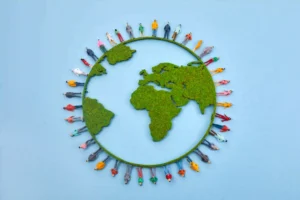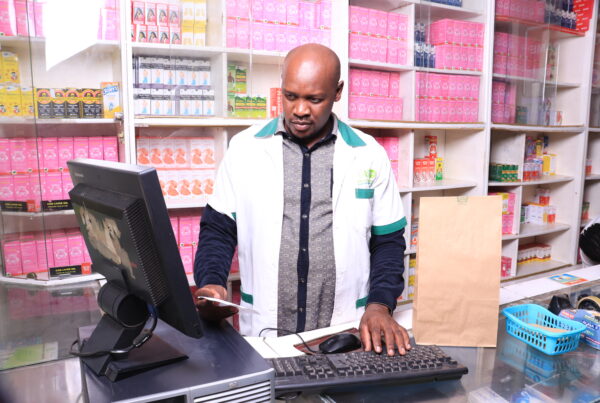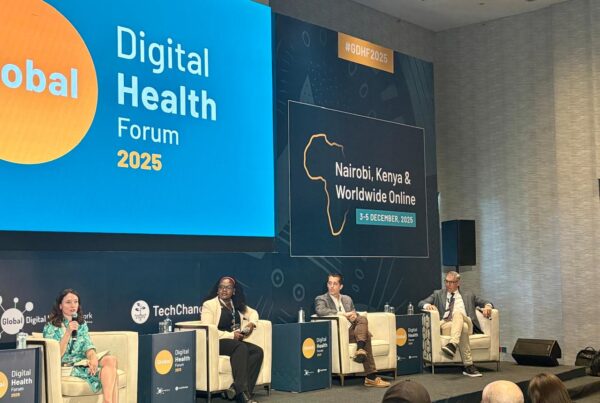A Case Study of HealthTech Hub Africa’s Blueprint Initiative
Intergovernmental working groups are crucial in shaping healthcare policies and strategies in Africa. IWGs in Africa’s healthcare sector are formed by representatives from different levels of government, civil society organizations, and other stakeholders to collaborate on healthcare issues and find solutions that benefit the entire population. The healthcare sector in Africa faces various challenges, including inadequate funding, a shortage of healthcare workers, and limited access to essential medicines and technologies. Intergovernmental working groups provide a platform for stakeholders to share their experiences, knowledge, and resources and develop strategies to address these challenges.

One of the key benefits of IWGs in Africa’s healthcare is their ability to promote coordination and collaboration among different stakeholders, which is critical for addressing the deficiencies in Africa’s healthcare sector. IWGs bring together representatives from different sectors, such as health, finance, and education, to develop comprehensive and integrated healthcare policies that take into account the various factors that affect health outcomes. Additionally, intergovernmental working groups can help to align national and regional healthcare policies, which can lead to more efficient use of resources and better health outcomes for the population.
“Jhpiego, operator of the HealthTech Hub Africa, is hosting the 1st hashtag#Kenya Intergovernmental Working Group! Join government ministries, key partners, & innovators as we explore Kenya’s HealthTech landscape & align on establishing an IWG to advance national healthcare priorities,” Tweeted Dr. Ayub Manya from the Ministry of Health Kenya.
The Healthtech Hub Africa, henceforth referred to as HTHA, is at the forefront of spearheading efforts to integrate IWGs into the African healthcare space. HTHA’s mission is to help governments and startups collaborate on data and technology-enabled innovations that strengthen African health systems. The hub launched its IWG during the Blueprint summit in Kigali, Rwanda, in 2023 to facilitate the fast-tracking of health tech innovations in public health systems through the interaction between public health leaders and health tech startups and scale-ups.
HTHA then carried out a follow-up Blueprint summit in August 2023 in Dakar, Senegal, where the hub fine-tuned its IWG agenda. HTHA intends to gather and distil policy insights and learnings from the acceleration and scale-up of use cases of health-tech innovations in public health. The Healthtech Hub intends to achieve this outcome through a series of landscape analyses, interviews, workshops, and learning boot camps conducted as the basis for the evidence-driven policy recommendations.
One of the anticipated outcomes of HTHA’s IWG initiative includes facilitating dialogue between start-ups and policymakers by addressing the gaps and providing opportunities for new and existing innovations to scale and strengthen health systems more broadly. HTHA’s IWG initiative also seeks to influence both in-country and global health policy by capturing real-world insights from the identified policy and regulation gaps in Africa.

These outcomes, in turn, collectively help HTHA’s IWG initiative to accomplish the broader goal of translating insights into action to achieve tangible population health impact and reduce health inequities through integrating and scaling up solutions in the public health systems. This broader goal corresponds with the over-arching mandate of IWGs in Africa’s healthcare sector of providing a platform for collaboration and coordination among stakeholders involved in the delivery of healthcare services. The coordination should inform the development of policies, guidelines, and strategies aimed at improving the quality and accessibility of healthcare services in the region.
Role of IWGs in Africa’s Healthcare Sector
Policy Implementation: The formation of the IWGs initiative for Africa’s healthcare sector by the HealthTech Hub Africa has led to more effective policy implementation. HTHA has programs that bring together various stakeholders and decision-makers to facilitate the development and implementation of policies that address key healthcare challenges in the region.
Disease Control and Prevention: Through the collaborative efforts of the stakeholders in HTHA’s IWGs initiative, significant progress has been made in disease control and prevention, mainly by working with startups and scale-ups that provide innovative healthtech solutions. These groups have played a crucial role in coordinating and implementing strategies to combat prevalent diseases, ultimately leading to improved public health outcomes.
Health Systems Strengthening: In so doing, HTHA, through IWGs, has contributed to the strengthening of healthcare systems across Africa. When IWGs foster cooperation and resource sharing, they enhance the overall capacity and resilience of healthcare systems, ensuring better access to quality care for the population.
Emergency Response: The establishment of intergovernmental working groups has bolstered emergency response capabilities within Africa’s healthcare sector. Streamlined communication and coordination during crises, as well as the widespread development and adoption of telehealth services, HTHA’s IWGs initiative has facilitated more efficient and effective emergency responses across the continent, ultimately saving lives and minimizing the impact of health emergencies.
Sustainable Development Goals: IWGs have played a pivotal role in advancing progress towards the Sustainable Development Goals (SDGs) in the healthcare sector. Through their collaborative efforts, HTHA’s IWGs initiative has contributed to the achievement of key SDG targets, particularly those related to health and well-being.
Conclusion
Despite the potential benefits of intergovernmental working groups, there are also challenges that need to be addressed. These include issues related to governance, financing, and sustainability that continue to be witnessed across Africa. Effective governance structures, adequate financing, and sustainability are essential to ensure that the working groups are transparent, accountable, inclusive, and adequately facilitated for the efforts made by IWGs in the healthcare space to have a profound impact, thereby emphasizing the role of the Healthtech Hub Africa’s IWGs initiative in achieving desirable change, particularly universal health coverage, for the continent.













